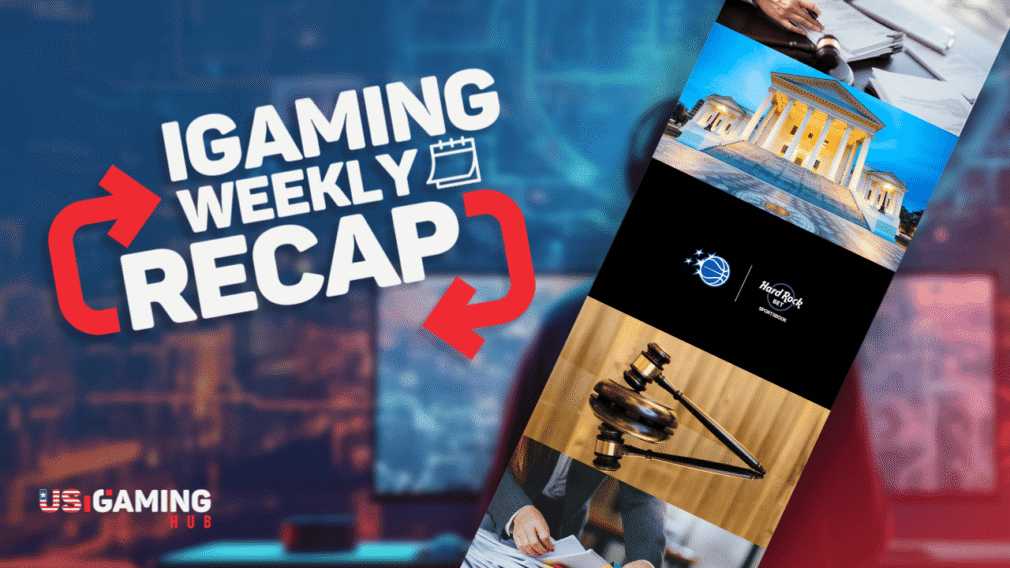iGaming Weekly Recap (October 6–12, 2025): Kalshi Takes the OCCC to Court
Michigan warns licensees about dabbling in prediction markets, Kalshi takes the Ohio Casino Control Commission to court, and sports betting interests pour money into Virginia politics, banking on favorable outcomes. What else went down last week? Check out our Weekly Recap!

The Michigan Gaming Control Board (MGCB) issued a stern warning to all state licensees, including commercial casinos, sports betting operators, iGaming platforms, and fantasy contest providers, stating that involvement in prediction markets, particularly those offering sports event contracts, will jeopardize their licensing suitability in Michigan.
As part of its ongoing duty to assess licensee suitability, the MGCB will actively monitor licensees and their partners for offering such contracts, especially in Michigan without explicit approval or in any jurisdiction where regulators have objected to these contracts. Licensees were also reminded of their obligation to promptly notify the agency of any material changes or intentions related to offering sports event contracts.
In Nevada, Federal Judge Andrew Gordon denied Crypto.com’s request for a preliminary injunction in its dispute with the state. The ruling follows Crypto.com’s lawsuit against Nevada after the Nevada Gaming Control Board (NGCB) issued a May cease-and-desist order over the company’s sports event contracts.
Gordon, who previously granted a similar injunction to prediction market operator Kalshi, this time rejected Crypto.com’s motion and dismissed its request for summary judgment. Crypto.com argued federal preemption under the Commodity Exchange Act (CEA), which grants the Commodity Futures Trading Commission (CFTC) exclusive jurisdiction over “swaps.” However, the likely reason for the denial is Gordon’s finding that the offered contracts don’t meet the CEA’s definition of a “swap,” undermining the preemption argument.
The Orlando Magic announced its first-ever sports betting partnership, naming Hard Rock Bet, operated by the Seminole Tribe of Florida, as its Official Sportsbook. Hard Rock Bet is currently Florida’s only legal betting platform. The deal aims to boost fan engagement and elevate the game-day experience, both at the Kia Center and digitally. It includes prominent branding in the Kia Center, such as a dedicated Hard Rock Bet Sportsbook space on the Terrace Level and permanent logos on both baskets during all Magic home games.
Sports betting and casino interests are aggressively funding political groups in Virginia ahead of the 2025 elections, with donations second only to those from Dominion Energy in the House of Delegates’ Political Action Committee (PAC). The Sports Betting Alliance, a Texas-based group, is the top donor, funneling over $2 million to Democrats – more than four times its contributions to Republicans. Experts suggest this spending pattern signals a bet on Democratic victories, with the funds aimed at securing favorable legislative outcomes, such as pushing for new casino developments or maintaining a stable, profitable regulatory environment for existing betting operations.
Kalshi filed a lawsuit in the U.S. District Court for the Southern District of Ohio against the Ohio Casino Control Commission (OCCC) and the state’s Attorney General, arguing that regulators are “exceeding their authority.” The suit stems from an OCCC cease-and-desist order requiring Kalshi to remove sports event contracts from Ohio by October 20, 2025. Kalshi contends that, as a Designated Contract Market (DCM) under the Commodity Exchange Act (CEA), it falls under the CFTC’s exclusive federal jurisdiction, rendering state regulation invalid (federal preemption). The OCCC rejected this defense, threatening Kalshi with “administrative, civil, or criminal penalties” for offering “unlicensed and unregulated sports gambling.”
Recommended





